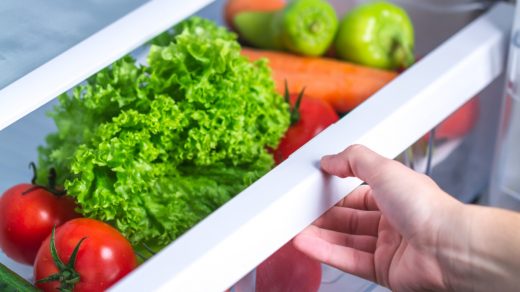Fishwife
· 5 min read
When it comes to the age-old question, “Is this chicken or is this fish?” the answer for Becca Millstein’s brand, Fishwife, is clear. (At least, it should be.)
Released in December 2020, the tinned-fish company has since blown up online, in part by changing the look and feel of canned fish. The brand has experienced “100% organic growth,” Millstein told us, now with more 27,000 Instagram followers and revenue six times higher in December 2021 than its first month.
We sat down with Millstein to talk about Fishwife’s “unconventional” debut, how its marketing strategy has grown, and its first brand partnership with Fly by Jing, which rolled out March 28.
Fish out of water
Millstein calls the Fishwife launch an “interesting case study,” beginning with the choice to go live in 2020 during the pandemic and also develop the brand’s look before sourcing the fish. But she said it felt natural given her marketing and branding experience.
“The last thing that I was doing in my career as a music-industry professional was basically working with musicians to devise their brand, voice, visuals, etc., so it was a very, very translatable skill to starting a [consumer packaged good] brand,” she said.
Illustrator Danny Miller brought the colorful vision for Fishwife to life, the only part of the operation that Millstein said has remained “locked” since 2020 (supply chains, man). “Between the name and the visual of what it was going to be, it just kind of struck a chord with consumers very, very quickly,” she said.
Part of the brand’s ethos has always been sustainability—it works with small-scale fishers, for instance—but Millstein didn’t want to rely on that for Fishwife’s brand image.
“I believe people are often primarily driven to buy food products because they think they’re delicious or innovative or cool,” she said. “So, we make responsible sourcing decisions, because that’s table stakes these days, but our primary branding strategy is much more about messaging deliciousness, humor, exuberance, artfulness—which has never existed in the seafood category.”
Millstein credits a lot of the initial growth to her co-founder, Caroline Goldfarb, who has since left the company and is better known to her 400,000 Instagram followers as @officialseanpenn. Millstein said Goldfarb’s followers “helped things move really, really fast,” drawing attention from outlets like Vogue and Refinery29. Vice also featured Fishwife in an article on tinned fish being “hot girl” food, after Nylon culture editor Layla Halabian made a similar claim on Twitter.
One-woman show
While Millstein plans to hire a marketing lead later this year, for now, she’s the brand’s only full-time employee. The result, she said, has been a lot of flexibility in the brand’s marketing strategy: “It’s like, ‘Okay, I can tell…these artists’ collaborations are really resonating. Let’s do more of them. Or these brand partnerships are really resonating.’”
The email newsletter guaranteed to bring you the latest stories shaping the marketing and advertising world, like only the Brew can.
Millstein said that to date, Fishwife has done collaborations with “female-identifying” artists like Rosemilk Ceramics and Anastasia Inciardi, as well as D2C companies like Parade, Brightland, Haus, and Ghia.
Most recently, Fishwife debuted its first co-branded product with Fly By Jing. Millstein called her relationship with owner Jing Gao a “beloved business friendship”—they even share an office space—and the collab has been in the making for some time.
A post shared by FLY BY JING (@flybyjing)
But wait, there’s more: “This year, we’ll be launching three branded product collabs, which is usually basically impossible to do with seafood” given cannery and production restrictions, she said.
Certified organic growth
To date, Millstein said Fishwife has not done any paid marketing. But with the brand growing and moving into larger canneries, the marketing strategy is about to undergo a shift to paid advertising. “In the past it was kind of like, ‘Okay, we know we’re gonna sell through all this inventory no matter what we do, so let’s just keep doing what works.”
So far, that’s been sending products to influencers and micro-influencers and hoping they post about Fishwife to get the word out, including Millstein’s “dream influencers” Alison Roman and Molly Baz. And it’s paid off: Roman lists Fishwife as one of her brand recommendations on her website. “It’s literally any food company’s dream to have these huge forces in the food world take it upon themselves to support your brand,” Millstein said.
Taking the DIY approach to organic marketing is something that Millstein is a big proponent of: “It’s massively time consuming, but if you can build those relationships in your first year of business with journalists, influencers, etc., those will never go away. [You’ll] always have a personal connection to them,” she said.
Looking ahead, Millstein said she hopes to hone her existing relationships with influencers, recipe makers, etc. to make sure Fishwife’s marketing goes “deep instead of wide.” She’s also “much less interested in just shoveling $10,000 into Facebook ads,” and more interested in SEO and affiliate marketing as a future strategy.
“We were so blessed by the organic-growth gods last year,” she said. “That’s not gonna last forever. So now we have the opportunity to really start throwing some gasoline on the fire, which I’m very excited about.”
The email newsletter guaranteed to bring you the latest stories shaping the marketing and advertising world, like only the Brew can.
Follow Us
Brands
Search
Brew
© 2022 Morning Brew, Inc.
All Rights Reserved.



